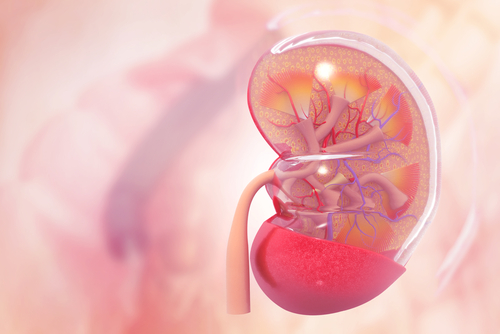Soliris Helps Treat aHUS Relapse with Kidney Disease During Pandemic
Written by |

Soliris (eculizumab) is effective for treating relapses in patients with atypical hemolytic uremic syndrome, even in the presence of severe kidney disease, according to a case report.
The case study describes a 29-year-old woman with aHUS who experienced a relapse complicated by severe kidney disease, after recovering from COVID-19 pneumonia. She entered remission again with Soliris treatment.
The report, “Importance of eculizumab treatment in recurrence of atypical hemolytic uremic syndrome during the SARS-CoV-2 pandemic,” was published in the journal International Urology and Nephrology.
The COVID-19 pandemic has interrupted the treatment of chronic disease patients, particularly those receiving routine treatments, like regular Soliris infusions. This study describes the case of an aHUS patient who recovered from COVID-19 and experienced an aHUS relapse brought on by missing routine treatment during the pandemic.
The patient achieved remission despite having a peak creatinine level of 6.9 mg/dL, which is far above the normal range (0.6–1.2 mg/dL), and low hemoglobin levels (range: 10.1–11.7 g/L; normal: 120–150 g/L). Creatinine is marker of kidney function, in which higher levels indicate a greater degree of kidney dysfunction. Hemoglobin is the protein that transports oxygen in red blood cells.
The patient had a history of posterior reversible encephalopathy syndrome, a rare disease that can be caused by kidney failure, and underwent dialysis four years prior. The patient had been in remission for 4.3 years (52 months) while receiving Soliris infusions at a dose of 900 mg every 15 days.
Genetic analysis revealed she had mutations in the complement factor H (CFH) and CFH Related 5 (CFHR5) genes. Both encode factors that are part of the complement system — a part of the immune system that enhances the body’s immune response against disease-causing microbes and is dysregulated in aHUS.
The patient was admitted to the hospital with a cough, a fever of 101.7 F (38.7 C), and low blood oxygen levels (90%; normal: 95%–100%). Chest imaging scans revealed signs of pneumonia and lung tissue inflammation. She was diagnosed with COVID-19 pneumonia after a positive throat swab test.
At admission, the patient had signs of kidney dysfunction, including elevated levels of creatinine (3.6 mg/dL), urea (95 mg/dL; normal: 5–20 mg/dL), and the inflammation marker C-reactive protein (24.8 mg/L; normal: less than 10 mg/L).
She was treated with 800 mg of hydroxychloroquine daily, two doses of favipiravir at 1,600 mg for one day and two doses at 600 mg for four days, and 400 mg of moxifloxacin daily for one week. The patient remained stable and was discharged after a week.
For 45 days she did not receive her regular Soliris infusions, which led to a relapse. While experiencing an episode of aHUS recurrence, the patient had elevated levels of urea (206 mg/dL), creatinine (6.9 mg/dL), and the tissue damage marker lactate dehydrogenase (343 units/L; normal: 140–280 U/L). Her platelet counts were also low (50,000 platelets/mcL; normal: 150,000–400,000 platelets/mcL).
The patient received a single dose of 1,200 mg of Soliris and 100 mg of the anti-inflammatory medication methylprednisolone over a period of five days. She continued treatment with Soliris every 15 days.
Within a month, her creatinine dropped to baseline level. After six months of treatment, her blood platelet and LDH levels had normalized. At the time of the report, the patient was in remission, receiving Soliris every 15 days.
“Although the case admitted with serum creatinine 6.9 mg/dL during the SARS-CoV-2 pandemic, it was interesting that this case achieved seamlessly both renal and hematological [blood-work] remission with [Soliris] treatment,” the researchers wrote.
“In the presence of aHUS relapse, [Soliris] is an effective treatment option regardless of the stage of kidney disease during the SARS-CoV-2 pandemic,” they added.





